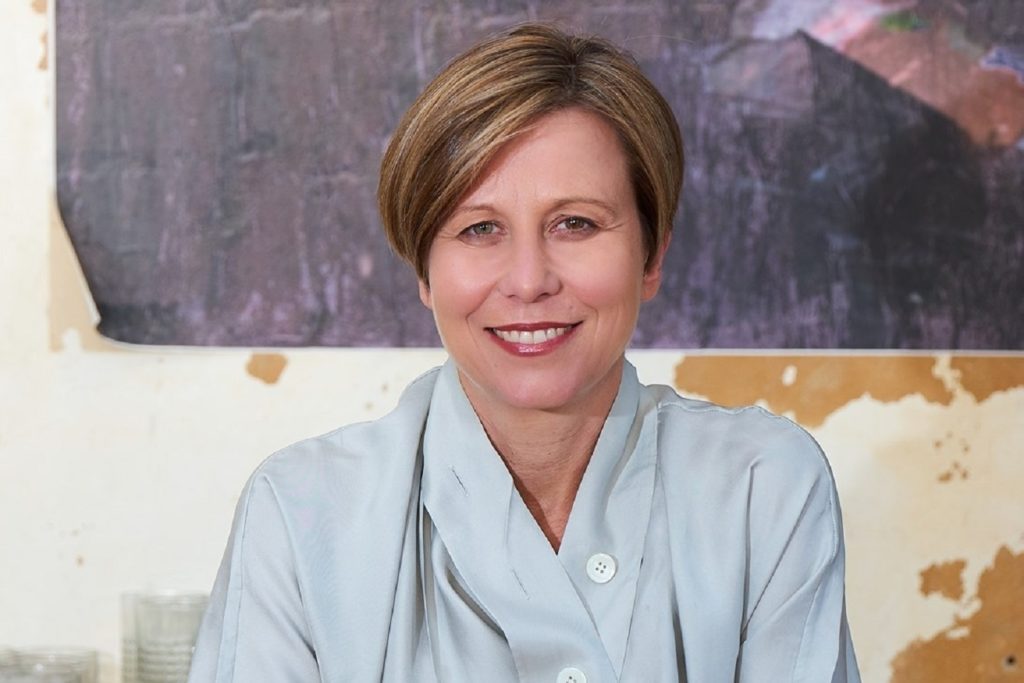Senator Jenny McAllister became a member of the Labor Party just prior to the party’s adoption of its first affirmative action rule for women in 1994. The rule committed the party to achieving preselection of women for 35 per cent of winnable seats at all elections by 2002.
Since that time, she’s gone on to become a Labor senator for NSW, where she’s served since 2015, and is now the Shadow Cabinet Secretary and Shadow Assistant Minister to the Labor leader in the Senate. In the same period, women like Julia Gillard, Tanya Plibersek, Penny Wong, and Kristina Keneally have risen to hold some of the most influential roles in the federal party.
Talking to Kate Mills in the latest episode of The Leadership Lessons, a Women’s Agenda podcast supported by Salesforce, McAllister says watching the Labor party grow to now have a shadow cabinet comprised of 50 per cent women, has been like witnessing a real-time experiment.
“We always said that once you hit 30 per cent it would change the culture of the party and I think it absolutely has,” she says in the podcast. “The key manifestation of that is that we have a series of women leaders who have emerged through the party to play very senior roles in our organisation.”
“The Liberal Party, at the same time, contemplated the same questions and took a different path and they are still stuck on unacceptably low levels of female representation.
“I do think that the decision to set a target and to build that into our party’s rules made a very big difference for us and it’s absolutely changed the culture.”
One of the key differences, McAllister notes, is the obvious thing – that having more women in leadership elevates women’s issues and puts them on the agenda.
“If you’re not at the table, you can’t put something on the agenda so there’s a whole range of things that have been brought into the public domain as a consequence of Labor’s female leaders,” McAllister says.
“I’m thinking about paid parental leave, I’m thinking about prioritising childcare, I’m thinking about the approach to superannuation and tax.”
There’s no uniform or singular way that women lead differently to men, it’s more that having gender equality in an organisation means there is space for women to adopt all sort of different leadership styles, McAllister says.
“A mature organisation lets women adopt the same kind of diversity in their choices about how they lead that men are afforded.”
Personally, McAllister abides by three rules of thumb when it comes to her own leadership.
“I try and be truthful and consequently be a person that can be trusted,” she says. “I really try and recognise the work of others, the best leaders I’ve worked with always recognise the work of their team.”
“Finally, I’ve observed that really good leaders are clear about what they want to do and why they want to do it.”
For the most part, McAllister believes that politicians go to work every day and try and do something good for their communities. And this has never been more evident than during the pandemic.
“Politicians across the divide have had a relentless focus on the national interest. Where politicians have strayed from the focus and sought to politicise the pandemic, I don’t think the public’s been very receptive to it,” she said.
“There were a whole lot of problems that appeared intractable prior to the pandemic that were then able to be solved during the pandemic. We did find homes for people who were homeless, we did manage to lift the rate of unemployment benefits so that people weren’t living in poverty.
“There are things that government can do to make people’s lives much better, I really hope that is one of the key lessons that our politics takes from the experience of 2020.”
The Leadership Lessons podcast series, hosted by Kate Mills, is a set of interviews with brilliant female leaders across industries, sharing their perspective on the critical decade ahead.
The Leadership Lessons is supported by Salesforce.


